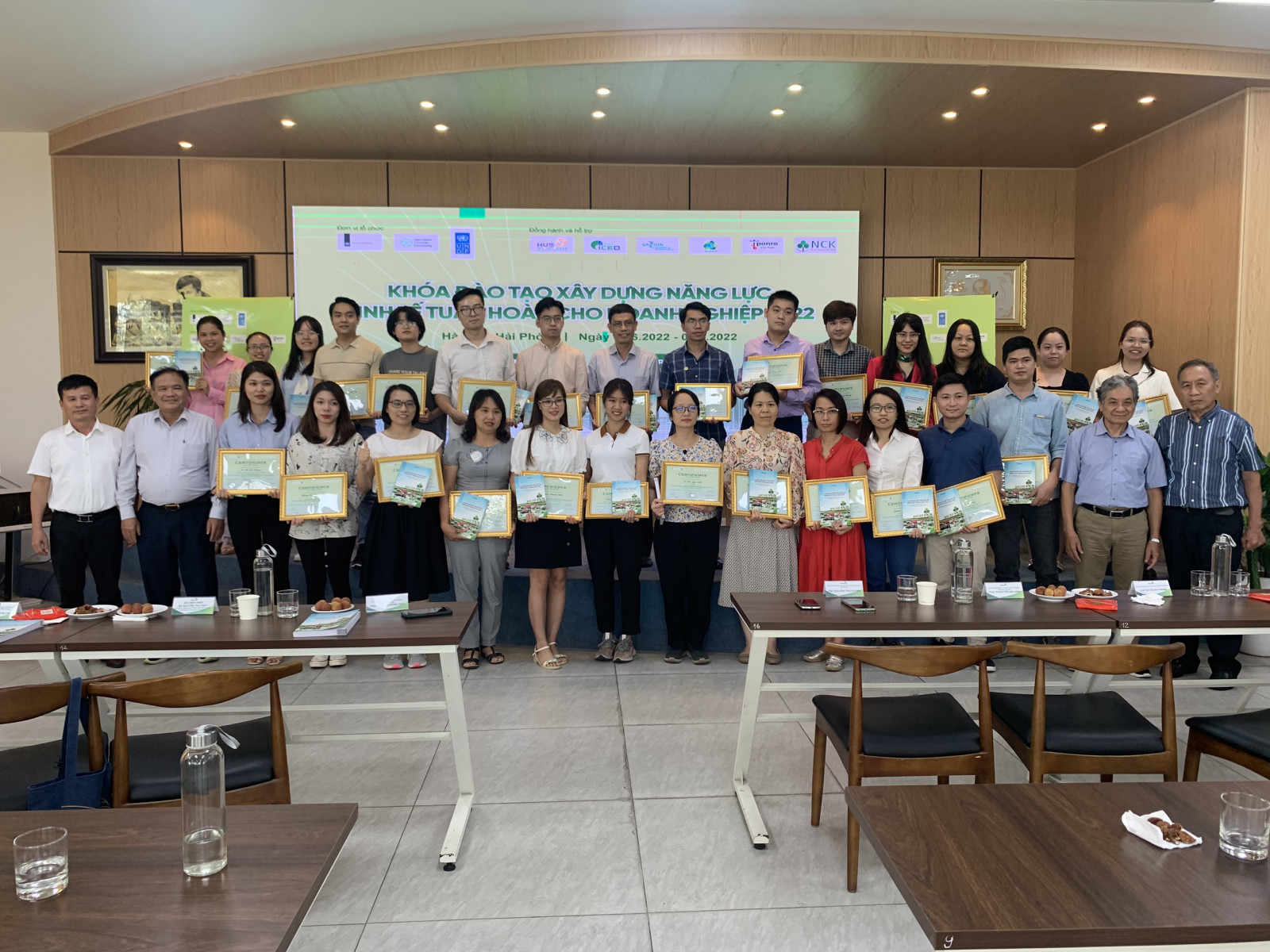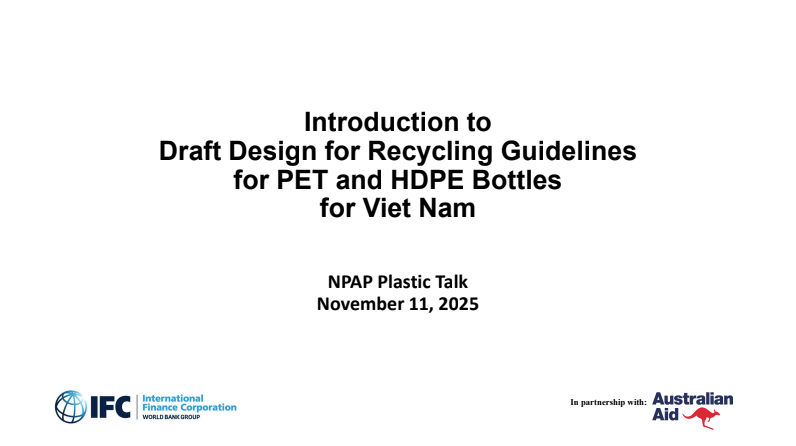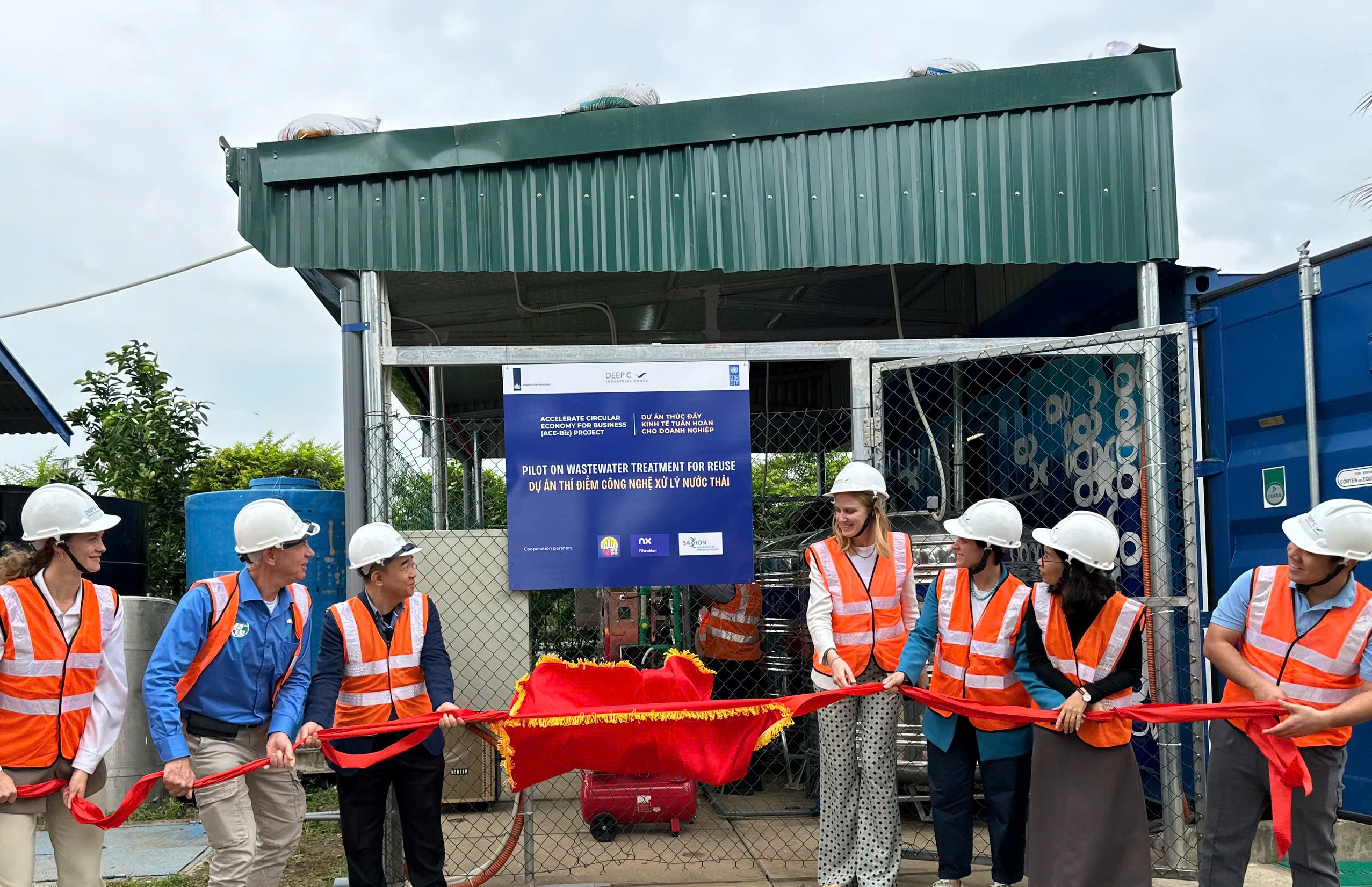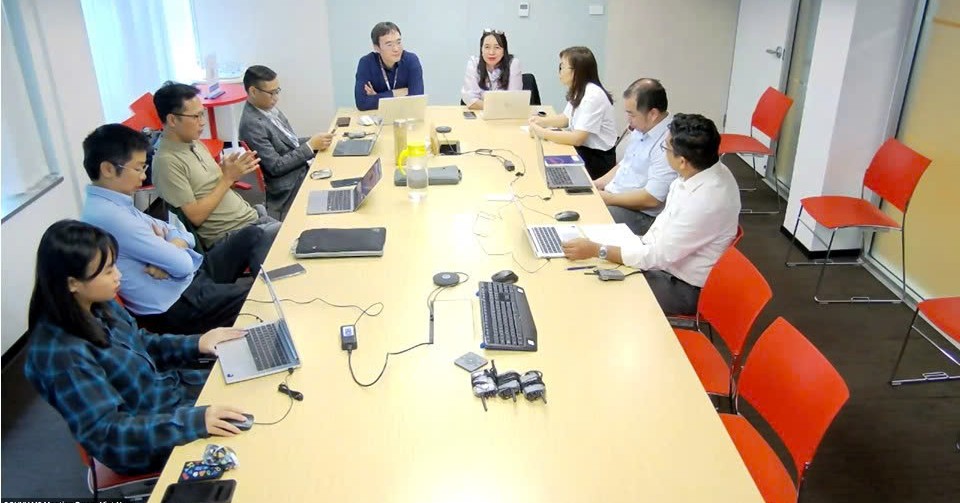Ha Noi – July 2022. From June 30th to July 2nd, the Institute of Environmental-Economic Policy (Viet Nam Association of Environmental Economics) in collaboration with the United Nations Development Program in Viet Nam (UNDP) organized the “Circular Economy Capacity Building Training Program for Business”. Attended by approximately 50 representatives from 40 different businesses in the Northern area, the 3-day training course in Ha Noi is one of the circular economy (CE) training series in 3 cities in Viet Nam.
During the program, businesses gained knowledge on tools for the development of circular business models, government policies on CE development, sustainable trade requirements of the European Free Trade Agreement Europe – Viet Nam (EVFTA), and circular economic models. Participants also had the opportunity to visit the circular-practiced model in Nam Cau Kien Industrial Park located in Hai Phong city.
Opening remarks were presented by Assoc. Prof. Dr. Nguyen The Chinh, Director of the Environmental-Economic Policy Institute (EEPI), in which he expressed hopefulness towards the positive effects circular economy can bring when scientifically approached. During the opening remarks Dr. Nguyen The Chinh explained how he believes that “businesses will have a more complete view of the circular economy and make appropriate adjustments for the company’s development orientation in the future based on the sharing experience of national and international experts.”
Afterward, Mr. Patrick Haverman, Deputy Resident Representative at UNDP Viet Nam, spoke on the importance of the business sector when transitioning to a circular economy. He emphasized that “in Viet Nam, Small and Medium Enterprises account for 96% of the total number of companies, employing 47% of labor and contributing 36% for the national value added. The business sector plays a key role in accelerating the transition, application, and operation of circular business models, low-carbon technologies, and clean technologies.”
Mr. Nguyen Thanh Yen, Deputy Director of the Waste Management Department – General Department of Environment (MONRE) then shared the importance of public involvement as well. He stated that Viet Nam is considered a pioneer in recycling which is one important “R” in circular economy. He also highlighted the importance of spreading the concept of circular economy to people from diverse backgrounds.
Day 1
Foreign Trade University (FTU) introduced some results of the 1st training program on circular economy. Besides the impressive results, they emphasized the importance of collective intelligence working towards a common goal.
Experts from Saxion University of Applied Sciences in the Netherlands provided an overview of CE models and CE model designs; (2) CE models with a focus in wastewater treatment; and blockchain applications in CE.
Dr. Nguyen Cong Thanh (National Economic University) presented 3 profitable opportunities for implementation of CE in Viet Nam: Viet Nam’s international trade activities; Viet Nam’s green economic recovery; and Business strategy after COVID-19. He also introduced potential financial resources to support circular business implementation and circular business application.
Dr. Nguyen Thi Xuan Thang clarified the role of the Sustainable Development Goals (SDGs) in business in order to achieve sustainable production and consumption. This can be achieved through discussing international sustainable development experiences and recommendations for the application in Viet Nam.

Day 2
Saxion University Expert provided knowledge about the tool for developing circular business models which includes a wide range of circular business models that are believed to support business in the designing stage.
Dr. Lai Van Manh (ISPONRE) emphasized that “circular economy promotes decoupling between gross domestic product (GDP) and environmental impact, efficient use of natural capital, and reduction of environmental pollution.” He pointed out the benefits businesses will gain when applying the concept of CE, then introduced CE tools, CE policies, and a CE roadmap to promote its application. He also mentioned several incentive policies such as investment country, green finance, etc.
Assoc, Prof. Nguyen The Chinh (EEPI) emphasized that “the transition to a new economic model does bring benefits; however, they face certain difficulties.” He also indicated that “businesses need to expand connections to implement an effective CE model, especially cost-benefit analysis (CBA) and product consumption, along with communication and image enhancement”.
Prof. Nguyen Danh Son (EEPI), presented about the CE network, underlined that “The previous network model of sustainable development is usually vertical and narrow with many linear properties. Network in the present is different, not only vertical but mostly horizontal, and not limited in terms of territory. Today, digital technology helps to expand unlimited connections, creating a special highlight in CE models. Digital connectivity erases administrative and management barriers, increasing opportunities for access to information, resources and creative capacity of all stakeholders.”
Day 3
The final day included a visit to a CE practice model at Nam Cau Kien Industrial Park in Hai Phong City. All participants were introduced to the CE model in Nam Cau Kien Industrial Park and firsthand witnessed the processes of circulating wastewater treatment.

Future Steps
Moving forward, the post-training will be organized to support the selected businesses for 4 months, with the participation of expert advisors. Also, the businesses are provided CE toolkits, guidelines, and advisory consulting to support them during the journey to explore further and develop CE business models. A series of lectures on the circular economy will soon be launched, which covers all related issues such as blockchain in CE, incentive mechanisms, and waste treatment.
















